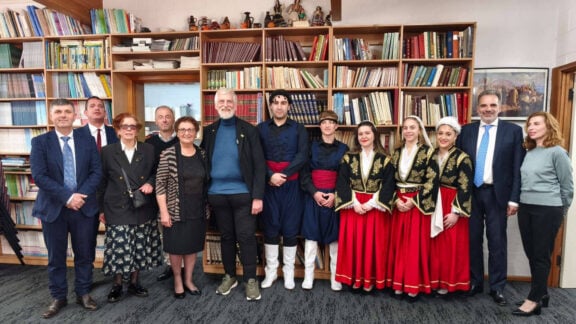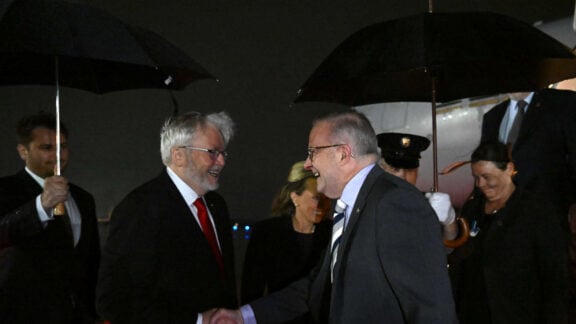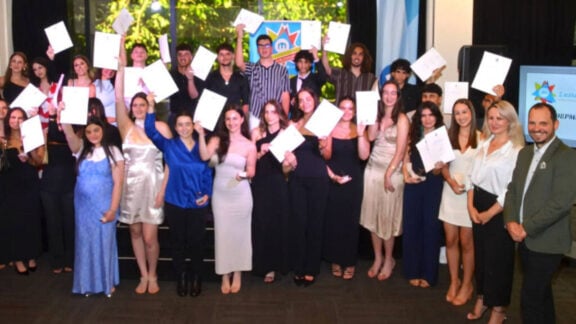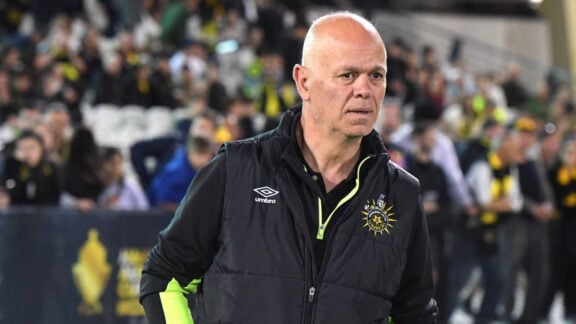From humble beginnings in 1964, St Monica’s College (SMC) in Epping has grown to enrol more than 1,900 students across two campuses, to whom it aims to provide a contemporary and relevant education.
The college is located on two modern, well-equipped city campuses in Melbourne’s northern suburbs, along with Ostia, its country campus in the tranquil valley of Strath Creek.
SMC is a Catholic co-educational secondary school (junior campus is from year 7-9 and senior campus is 10-12) and is regional in ownership and governance. As such, the college serves the priority parish of Reservoir North as well as the parishes of Epping, Thomastown West, Lalor, Mill Park, Reservoir, East Reservoir and East Preston. Applications are received from other parishes too.
By remaining faithful to its mission statement, the school seeks to develop and nurture the formation of the whole person for boys and girls alike, while at the same time treasuring cultural diversity and shared understanding of community. The school was named after St Monica (AD332-AD387), a rich source of inspiration and determination to succeed via prayer and perseverance.
The college also takes pride in its language teaching and activities, which encourage multiculturalism and genuine relationships among students. One of the most popular language classes at the college is the teaching of Greek.
Ms Maryanne Theodosis walked us through a typical day at SMC, explaining how the school’s philosophy is realised into nurturing young people who value their cultural identity and want to become more in life.

How does St Monica’s college encourage cultural diversity?
We have students who are from different religions that are accepted and respected and we offer five languages aside from English − Greek, Italian, Spanish, French and Japanese. Languages are highly supported and encouraged not only by teachers but from senior leadership too.
The programs at SMC are student-centred and lead to respect of self, others and the environment, cultivating an appropriate sense of responsibility. It’s important to note that in religious education classes, students are taught about world religions, not just the Catholic religion.
Does the majority of your students come from ethnic backgrounds?
As far as ethnic background, CECV does not collect that data. I could say confidently, however, that our school population is highly diverse, reflecting the ethnic mix in the area.
How many students are selecting Greek as a second language?
We are very fortunate to have individual classes from years 7 to year 12. Languages are compulsory from years 7 to 9, and as of year 10 to 12 they become an elective. Currently we have two Greek classes in year 7, with 18 students each. Two in year 8 with 24 students and another two in year 9, each attended by 15 students. We have 14, 11 and six students learning Greek in years 10, 11 and 12 respectively.
Meanwhile, it’s important to note that when teaching Greek students we aim to teach the language as a second language, not as a primary language, as many of our students are second or third generation Greeks. There are many mixed marriages as well, so we need to be sensitive to cultural awareness.

What do you focus on when teaching students Greek?
I always try to teach a variety of skills and topics per week to ensure the students are focused and prepared to learn. We avoid doing the same activity twice over a short period of time. Enriching vocabulary in a fun and exciting way is also important, as I believe students learn more when they are interactive. Personally, I organise many games and activities in Greek to build on these skills as well as creating a warm relationship among my students and the different classes. Many students love coming to Greek because of the safe and warm friendships they have established and built over time. We are a dynamic family.
In the senior classes, aside from focusing on our detailed studies and on enriching the four skills of speaking, listening, reading and writing, the students are taught topics such as social justice, emotional awareness, Edward de Bono’s six thinking caps, including being a responsible and active citizen and caring for the environment. I try to expose and talk to the students about relevant and current events that are happening around the world, including the building of St George in NYC and the Syrian exodus to the Greek islands. We discuss the meaning of the term philanthropy, what it means to Greeks and why there is no direct translation of the word in English. Students are also exposed to influential Greek Australians such as Luka Lesson, a Greek Australian poet who spent the day with us at the college teaching kids how to write and present poetry. I also encourage them to critically analyse information they come across and to always research and educate themselves on topics beyond the classroom.

What does the curriculum of the Greek classes include?
At the beginning of year 7, each student is given a laptop that is funded by the college, equipped with the latest programs and all language keyboards. At year 10, the laptops are upgraded.
From years 7 to 9 there are three classes a week allocated to all languages and the days are dependent on timetable, teacher and class availability. There is a Greek classroom in the junior campus for some of the classes and one in senior campus where all Greek classes for years 10 to 12 take place.
In the junior years we aim to teach students the fundamental basics of the Greek language, we incorporate cultural awareness and activities, excursions, and at times arts and crafts and cooking lessons. The junior students also have access to Language Perfect, which is a program that aims to help improve Greek vocabulary and grammar in the four skills of reading, listening, speaking and writing while creating a dynamic friendly competition within class members.
In years 10 and 11 there are five lessons allocated for language, one single lesson and two doubles. In year 12, there are six lessons allocated to languages, two double lessons and two singles.
Moreover, we are extending the CLIL program to Greek next year, while religion and humanities will be taught to a class in the Greek language. We currently have this for Italian and Japanese, so we are very excited to extend this to Greek too.
The senior classes have the opportunity to attend a Greek Retreat that encourages the use of the Greek language and culture outside the classroom. It is an overnight retreat held at our Ostia campus in Strath Creek, and the students are exposed to a number of activities all run in Greek by myself and another colleague.
At the end of the day, the students cook their own Greek meal, which usually comprises of yemista, tzatziki, Greek salad, souvlakia, loukoumades and sometimes chamomile tea. We finish the night with a classic Greek movie or a Disney film in Greek, Politiki Koyzina or some episodes of Acropolis Now. The kids have a wonderful time, and really enjoy the experience. Language teaching can be so much more!
For more information head to www.stmonicas-epping.com or directly contact St Monica’s College on (03) 9409 8800 or via email at admin@stmonicas-epping.com









